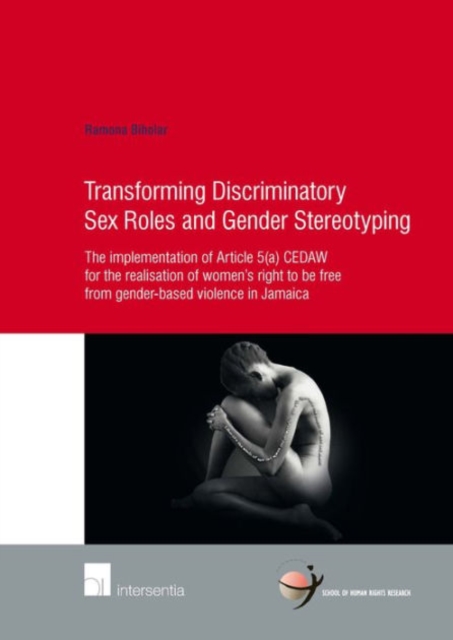
Transforming Discriminatory Sex Roles and Gender Stereotyping : The Implementation of Article 5(a) CEDAW for the Realisation of Women's Right to be Free from Gender-Based Violence in Jamaica Paperback / softback
by Ramona Biholar
Part of the School of Human Rights Research series
Paperback / softback
Description
Gender-based violence against women is a stubborn problem worldwide.
It still affects the everyday lives of many women around the world.
This scourge has deep social and cultural roots, which foster a vicious cycle of gender violence.
Embedded constructions of femininity and masculinity based on ascribed sex roles and consequent gender stereotyping hinder the elimination of gender-based violence and the implementation and full realisation of women's human rights.
At the international level, Article 5(a) CEDAW provides for an agenda for social and cultural transformation: it imposes on States parties to CEDAW an obligation to modify sex roles and stereotypical social and cultural patterns of conduct, and thereby provides for the protection of women from violence stemming from such gender norms.
Yet, the lived realities of women are frequently disconnected from this agenda.
Nonetheless, it is the reality of the local that is crucial for the articulation, implementation and realisation of internationally set human rights norms. The research in this book has explored the transformation of sex roles and gender stereotyping, and interrogated, in the specific context of Jamaica, the implementation of Article 5(a) for a social and cultural transformation and the realisation of women's right to be free from gender-based violence.
Based on empirical, socio-legal research, this book advances a synergistic model, which illuminates the multiple actors, actions and strategies, and the organic, integrated interplay between and among them, that are instrumental, at the country level, in putting Article 5(a) in practice.
An underlying component of the model is the individual consciousness, where gender and gender constructions operate.
Developing a consciousness of the meaning of Article 5(a) and of the gravity of the root-causes of gender-based violence against women is a key dimension to the process of putting this Article into practice.
The synergistic model proposed in this book is not only to untangle the tension and mend the fissure between Article 5(a) on paper and the lived realities of women in Jamaica. It is also a model for the implementation of this Article, which contributes in practical ways to the ultimate universal goal of reducing gender-based violence against women and realising women's human right to a life free from violence.
Information
-
Out of Stock - We are unable to provide an estimated availability date for this product
- Format:Paperback / softback
- Pages:340 pages
- Publisher:Intersentia Ltd
- Publication Date:08/06/2013
- Category:
- ISBN:9781780681672
Information
-
Out of Stock - We are unable to provide an estimated availability date for this product
- Format:Paperback / softback
- Pages:340 pages
- Publisher:Intersentia Ltd
- Publication Date:08/06/2013
- Category:
- ISBN:9781780681672










